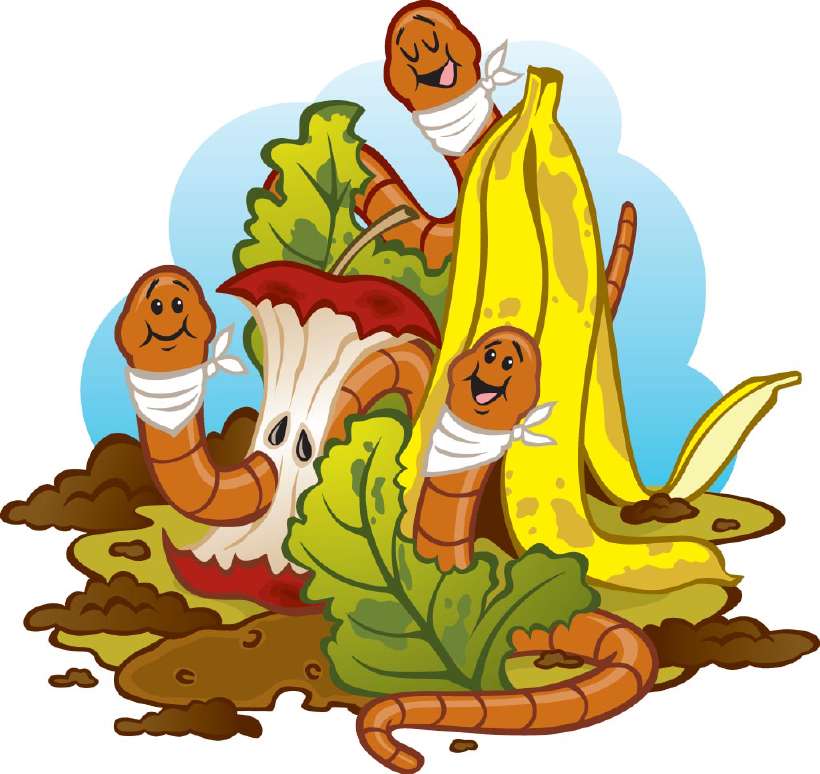The Earthworm's Good Turn
Home / Science for Kids / Planet Earth for Kids / The Earthworm's Good Turn
Every day, countless dustbins are emptied in dumping grounds. A lot of this garbage ends up polluting the ground water and also the rivers and seas.
Actually, a large part of this junk, especially the biodegradable waste (waste that can be decomposed) can be disposed in a more efficient manner, without polluting water bodies. Many countries are now doing it by using a cheap and eco-friendly option – the earthworm.
Yes, earthworms have been in the business of decomposing waste and enriching the soil for thousands of years. It is only in the past few years that people have realised the importance of these little pests.

Measuring three to four inches in length, the earthworm (called the red worm) can eat food equal to its own weight in a day. The nutrition-rich waste it excretes is known as “worm castings” and is used as organic manure to enhance the fertility of soil.
In many foreign countries, worm bins are being sold to households. The bin is made of plastic or wood and has small holes to allow good ventilation. The owners need to create the proper environment for the worms and line the bin with worm castings, shredded newspaper and fruit and veggie peels.
Of course, they need worms. At least 1,600 – 4,000 wrigglers! These worms will munch through food garbage for years as long as the bin is warm, dark and has plenty of air circulation.
The Pune-based Bhawalkar Earthworm Research Institute and many other agencies in different cities are actively involved in teaching people the importance of vermiculture.
A voluntary agency called Wastewise (in Bangalore) has organised 400 residents into a group to collect household biodegradable wastes and recycle it using vermiculture technology.
![The Earthworm's Good Turn [Illustration by Shinod AP]](/media/earth-120_1_hu02c0d7481daf87c6497b578ea4b15008_11932_820x0_resize_q60_box.gif)
The compost (earthworm castings) is then sold back to the residents of the area for use in their kitchen gardens. Mumbai too has its share of vermiculture units, with the Bal Bhavan (an educational institute) taking an interest in the technology.
There is a small garden near Hassaram Rijhumal College (Churchgate, Mumbai) which has a vermiculture pit and which uses worm castings for manure. Interestingly, Japan imports 3000-million tonnes of earthworm per annum for vermiculture projects in the country. However, India still has a long way to go before vermiculture becomes popular among the masses.
394 words |
3 minutes
Readability:
Grade 9 (14-15 year old children)
Based on Flesch–Kincaid readability scores
Filed under: planet earth
Tags: #mumbai, #waste, #technology, #institute, #earthworms, #vermiculture
You may also be interested in these:
Worming into the Olympics
The Green Magician
UFO Landing
The Puppy that wanted to Play
Indian Children on US Mars Project